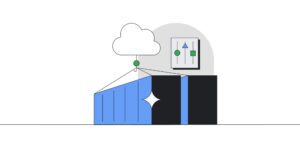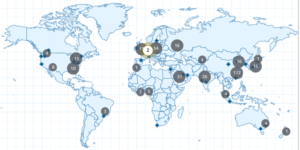
[ad_1]
Editor’s notice: When Europe’s largest cell communications firm, Vodafone, was requested by the European Fee to assist perceive inhabitants motion throughout the European Union and the UK to assist combat COVID-19, it was capable of present anonymized cell network-based insights to reply the decision. Right here’s how Vodafone, with the help of Google Cloud, quickly mobilized the COVID-19 frontline, whereas respecting its prospects’ privateness.
With the emergence of COVID-19 in early 2020, the European Fee—the manager department of the European Union (EU)—knew that expertise can be instrumental in its combat to manage the pandemic. With numerous lockdowns imposed throughout its member states, the Fee was eager to foretell and stop the unfold of COVID-19 and to handle the associated social, political and monetary impacts.
Cellular community knowledge helps monitor COVID-19 throughout the EU
Cellular networks produce location knowledge, which could be changed into helpful nameless insights to know inhabitants motion inside a geographic space. The European Fee, working with cell business affiliation GSMA (Groupe Speciale Cellular Affiliation), requested Europe’s main cell phone operators for assist in producing insights to help the combat towards COVID-19. As the biggest cell community operator inside the EU, Vodafone noticed this as a vital alternative to take part.
Vodafone had earlier expertise of utilizing cell community knowledge to help pandemic analysis. For instance, in 2019, Vodafone offered mobility sample evaluation to assist monitor the unfold of Malaria in Mozambique. And, throughout the early levels of the COVID-19 pandemic (previous to working with the European Fee), Vodafone assisted the Italian and Spanish governments in understanding their residents’ mobility patterns. Vodafone had additionally beforehand provided anonymized and aggregated inhabitants mobility insights to help public transport and tourism authorities and retail organizations in numerous international locations. Consequently, Vodafone was completely positioned to play a higher position in supporting the European Fee’s response to the pandemic.
When requested to help the European Fee, Vodafone first thought of the way it may safely share its knowledge with the governing physique with out offering particulars on the person actions of its prospects. It realized it may obtain this by means of an elaborate set of anonymization and aggregation methods. Insights are aggregated from a minimal of 50 customers and Vodafone solely shared these nameless insights and by no means the precise uncooked knowledge with the Fee. As specified by the EU, these insights are then introduced onto a big geographical area, usually a metropolis or a county with hundreds of individuals dwelling in that space.
These insights illustrate how folks transfer, serving to to find out how lockdowns and self-isolation measures had been impacting behaviors.
Utilizing Google Cloud to collate and retailer inhabitants mobility knowledge
In April 2020, Vodafone started migrating its operations, together with its cell knowledge, to Google Cloud on servers in Europe and the UK with elaborate safety safeguards, together with encryption, constructing on a earlier partnership.
With the info residing in EU and UK knowledge facilities and never america, Vodafone may then retrieve nameless insights from Google Cloud Storage instantaneously. Earlier than supplying any info to the European Fee, nonetheless, Vodafone used Dataflow to validate the info and run a sequence of checks to make sure the database had correct knowledge, earlier than ingesting and archiving the related metrics. For fast entry, the info was then made obtainable to the European Fee utilizing a Redis database on Google Kubernetes Engine.
To make sure combination Vodafone buyer knowledge was at all times protected, safe, and nameless, all entry factors to the front-end had been protected behind Google Cloud Armor, the place solely particular IP addresses had been allowed. Utilizing these instruments, seamless knowledge pipelines fed in predefined key efficiency indicators from every specified European market. Whereas knowledge high quality measures ensured the definitions for metrics throughout markets had been constant and may very well be precisely in contrast.
The structure (pictured beneath) reveals how Vodafone built-in and anonymized its knowledge on Google Cloud.
[ad_2]
Source link





